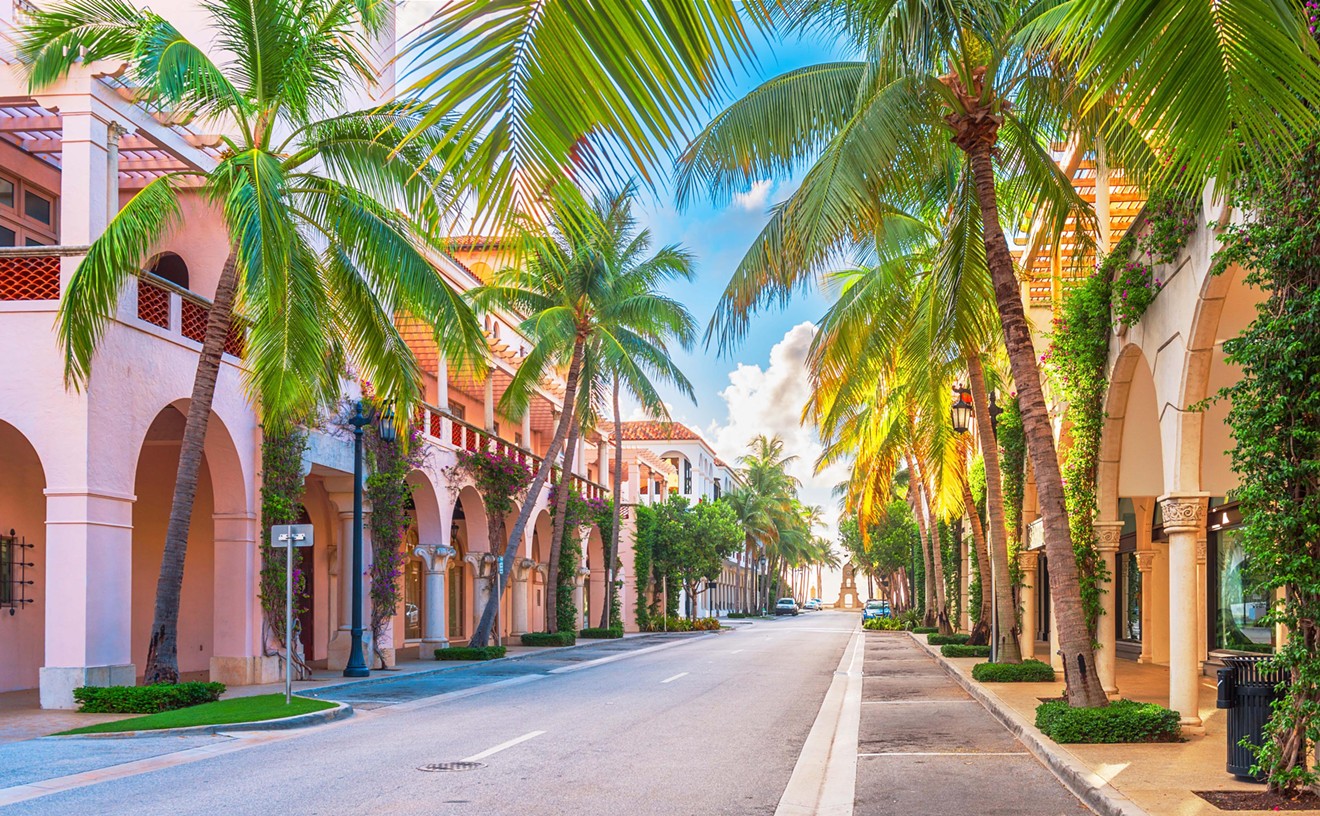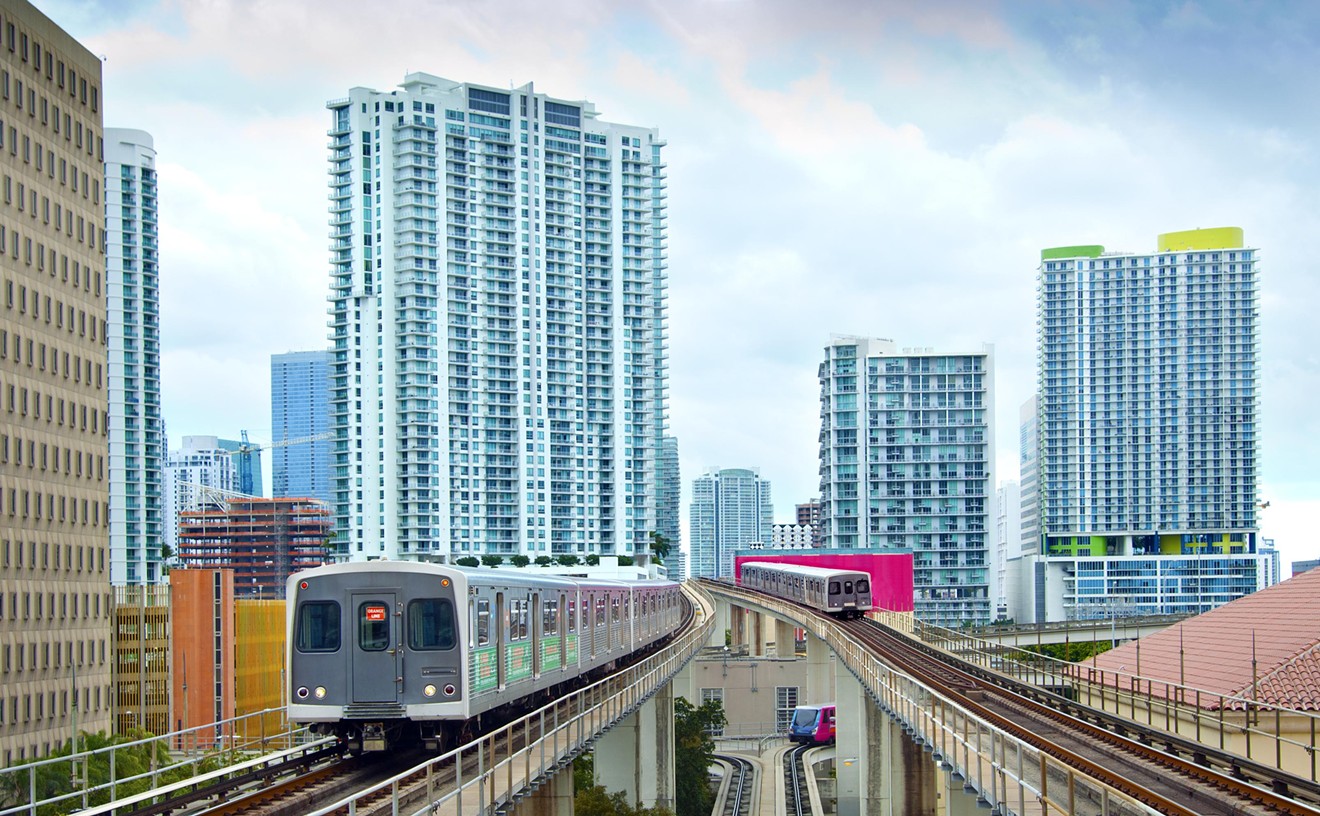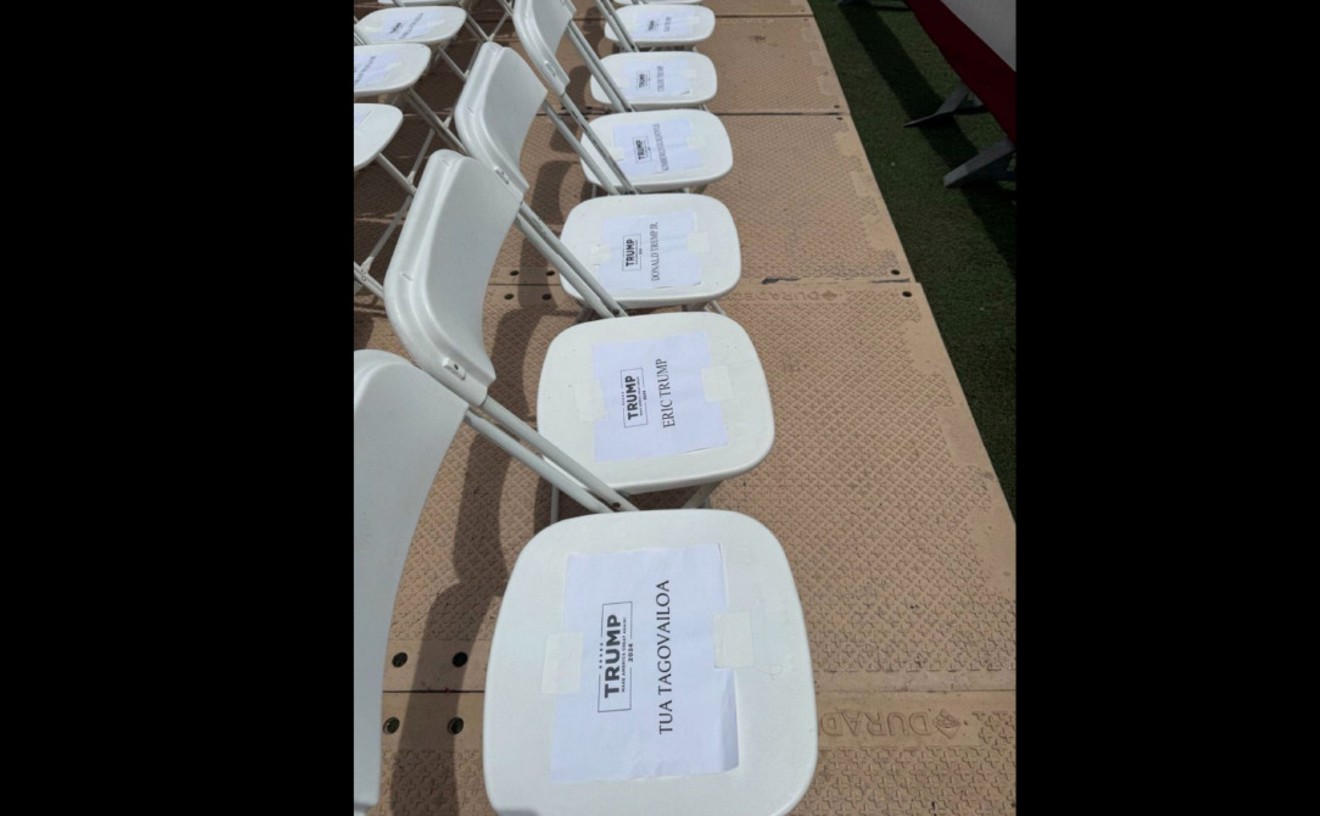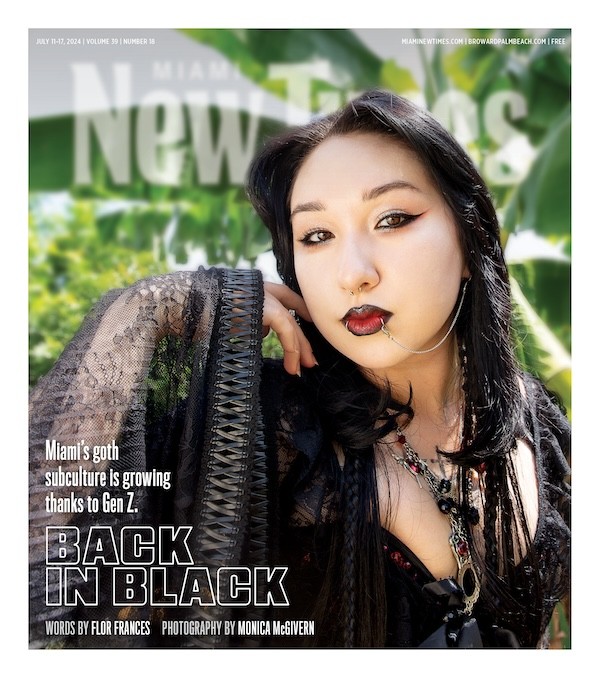An eleventh-hour decision in the 11th Circuit Court of Appeals stands to allow public schools across Florida, Alabama, and Georgia to deny transgender students access to their preferred on-campus bathrooms on the basis of their sex assigned at birth.
On the brink of the New Year's weekend, a seven-to-four majority of the appeals panel ruled that the School Board of St. Johns County did not run afoul of the U.S. Constitution and a federal anti-discrimination law by prohibiting a transgender male student from using boys’ bathrooms.
The ruling has wide-reaching implications in the 11th Circuit's tristate jurisdiction, as the decision broadly found that "separating school bathrooms based on biological sex passes constitutional muster" in public schools.
The case was brought by Drew Adams, a transgender plaintiff who sued the St. Johns school board after he was barred from using male bathrooms while attending Allen D. Nease High School in Ponte Vedra, Florida. Adams described a "walk of shame" that he had to endure when he made his way to the restroom, a trudge that made him feel like he was not "worthy of occupying the same space as [his] classmates." While the school had gender-neutral bathrooms, Adams maintained he felt ashamed because he was unable to use the restroom that matched his gender identity.
Writing for the majority, U.S. Circuit Judge Barbara Lagoa ruled that the St. Johns school board's policy advanced students' "privacy interests in using the bathroom away from the opposite sex and in shielding their bodies from the opposite sex." She repeatedly referred to Adams as a "biological female" and claimed his gender identity was "not at issue" in the case.
Lagoa rejected the notion that bathroom stall doors provide sufficient barriers to quell privacy concerns. As to Nease High School, she pointed to the presence of undivided urinals and student use of open areas in the bathrooms to change clothes.
"The sex-specific privacy interests for all students in the sex-separated bathrooms at Nease attach once the doorways to those bathrooms swing open," the judge wrote.
In an extended dissent, U.S. Circuit Judge Jill Pryor wrote that Lagoa disregarded ample evidence which "demonstrates that gender identity is an immutable, biological component of a person's sex." Pryor cited testimony from clinical psychologist Diane Ehrensaft, who asserted that transgender patients' gender identity, whether or not it matches sex assigned at birth, is a "deep-seated, deeply felt component of human identity" — and "not a personal decision, preference, or belief."
"The majority opinion misuses the term 'biological sex,' contradicting unchallenged findings of fact that reflect medical science and oversimplifying — indeed, excising — the role of gender identity in determining a person’s biological sex," Pryor wrote.
Pryor noted that no evidence was presented to suggest that male students complained about or were bothered by Adams' presence in a boys' bathroom. The few students who complained about Adams going into the boys' bathroom were female, according to Pryor.
The 11th Circuit's December 30 decision reverses a lower court ruling that found in favor of Adams on his counts for violations of the Equal Protection Clause and Title IX, a federal law that prohibits sex-based discrimination in federally funded schools. Though Adams secured a victory on appeal in 2020, the school board successfully petitioned the appeals court's full eleven-member panel to rehear the case.
On the issue of sex discrimination under Title IX, Lagoa pointed to a section of the law stating that schools are permitted to "separate toilet, locker room, and shower facilities on the basis of sex." The judge wrote that incorporating "gender identity” in the term "sex" would upend the statute and "have repercussions far beyond the bathroom door."
"Under such a precedent, a transgender athlete, who is born a biological male, could demand the ability to try out for and compete on a sports team comprised of biological females," Lagoa wrote.
Pryor called Lagoa's "slippery slope" argument unfounded. She drew a distinction between gender-fluid students, who have a flexible view of freely changing between male and female, and students with a consistent gender identity.
"This case has no bearing on the question [of] how to assign gender fluid individuals to sex-separated bathrooms... The school district’s bathroom policy categorically bans only transgender students — defined as those who 'consistently, persistently, and insistently' identify as one gender — from using the restroom that matches their gender identity," Pryor reasoned.
Lagoa, a Donald Trump appointee and Miami native, was joined in the majority by judges Kevin Newsom, Elizabeth Branch, Britt Grant, Robert Luck, and Andrew Brasher, all of whom were Trump appointees, along with William Pryor Jr., a George W. Bush appointee.
Dissents were penned by Jill Pryor, a Barack Obama appointee, along with Charles Wilson (a Bill Clinton appointee), Adalberto Jordan (an Obama appointee), and Robin Rosenbaum (an Obama appointee).
The new ruling comes down two months after the Florida Board of Education approved a strict set of rules for school districts concerning bathroom policies. Under the state rules, local school boards have to post a public notice if they separate bathrooms "according to some criteria other than biological sex." Public schools also have to set aside facilities for students who want to use bathrooms and locker rooms separated by sex assigned at birth.
Adams' attorney Tara Borelli, senior counsel at Lambda Legal, said in a statement provided to New Times that the 11th Circuit's ruling contradicts the decisions of "every other circuit to consider the question" of constitutionality in public schools' policies on transgender bathroom access.
"Transgender students deserve the same dignity and opportunity to thrive in school as all other students, and Lambda Legal’s work will not be done until that is a lived reality for every student," Borelli said.
The St. Johns County School District applauded the 11th Circuit ruling, saying it "was supported by sound legal reasoning and common sense." The school board was represented by Sniffen & Spellman, with attorney Jeffrey Slanker handling oral argument in the appeal.
"Under this decision, the district will be able to protect all students' rights," superintendent Tim Forson said in a statement.
Setting up a potential Supreme Court battle, the 11th Circuit decision conflicts with rulings from the Fourth and Seventh Circuits, which found that public school policies that bar transgender students from bathrooms matching their gender identity violate their constitutional rights and Title IX.
Adams, now in his 20s, testified that he felt like a boy as far back as he remembers, refusing to wear skirts and dresses and shying away from girls' toys. He said that when he hit puberty, he began to detest physical attributes that made him appear feminine. A psychologist diagnosed him with gender dysphoria, a condition characterized by severe distress caused by incongruity between one's gender identity and sex assigned at birth. As a teenager, he underwent medical treatment to transition to male while he changed his driver's license and birth certificate to reflect his gender identity.
Adams began attending Nease High in the fall of 2015. During his high school years, he served on the youth ambassador council for the Trevor Project, a suicide-prevention initiative for LGBTQ youth, and received a HandsOn Youth in Action Award from a Jacksonville nonprofit for his volunteer work.
The St. Johns County school board created a task force in 2012 to review its LGBTQ student policies. The group produced a policy guide, which outlined transgender students' access to gender-neutral bathrooms but did not alter the school board's longstanding, unwritten policy of requiring students to use the bathroom matching their sex assigned at birth.
[
{
"name": "Air - MediumRectangle - Inline Content - Mobile Display Size",
"component": "19274298",
"insertPoint": "2",
"requiredCountToDisplay": "2",
"watchElement": ".fdn-content-body",
"astAdList": [
{
"adType": "rectangle",
"displayTargets": "mobile"
}
]
},{
"name": "Editor Picks",
"component": "17482312",
"insertPoint": "4",
"requiredCountToDisplay": "1",
"watchElement": ".fdn-content-body",
"astAdList": [
{
"adType": "rectangle",
"displayTargets": "desktop|tablet"
},{
"adType": "rectangle",
"displayTargets": "desktop|tablet|mobile"
}
]
},{
"name": "Inline Links",
"component": "18711090",
"insertPoint": "8th",
"startingPoint": 8,
"requiredCountToDisplay": "7",
"maxInsertions": 25
},{
"name": "Air - MediumRectangle - Combo - Inline Content",
"component": "17482310",
"insertPoint": "8th",
"startingPoint": 8,
"requiredCountToDisplay": "7",
"maxInsertions": 25,
"watchElement": ".fdn-content-body",
"astAdList": [
{
"adType": "rectangle",
"displayTargets": "desktop|tablet"
},{
"adType": "rectangle",
"displayTargets": "desktop|tablet|mobile"
}
]
},{
"name": "Inline Links",
"component": "18711090",
"insertPoint": "8th",
"startingPoint": 12,
"requiredCountToDisplay": "11",
"maxInsertions": 25
},{
"name": "Air - Leaderboard Tower - Combo - Inline Content",
"component": "17482313",
"insertPoint": "8th",
"startingPoint": 12,
"requiredCountToDisplay": "12",
"maxInsertions": 25,
"watchElement": ".fdn-content-body",
"astAdList": [
{
"adType": "leaderboardInlineContent",
"displayTargets": "desktop|tablet"
},{
"adType": "tower",
"displayTargets": "mobile"
}
]
}
]












